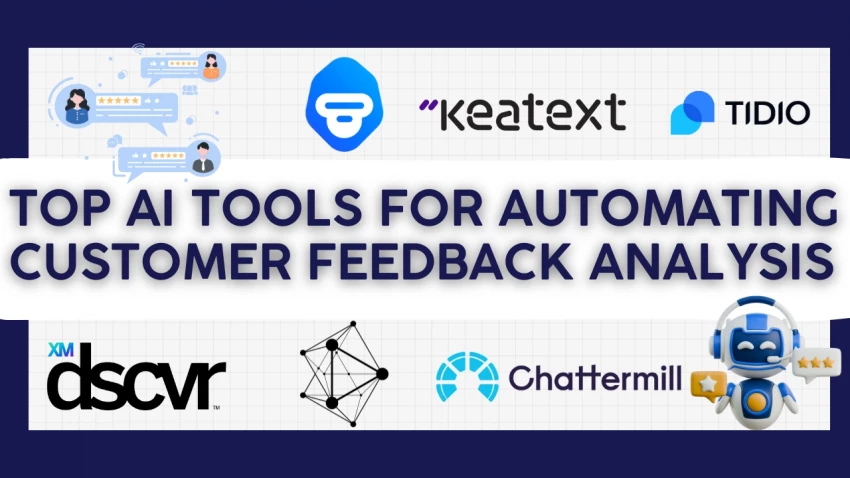

Customer feedback is no longer just a survey form you collect at the end of a transaction. Now, it’s the backbone of business growth—shaping product roadmaps, customer service improvements, and even marketing campaigns. The challenge? Feedback pours in from emails, chats, reviews, social media, and support tickets, making manual analysis slow and error-prone.
That’s where AI tools for customer feedback analysis step in. These platforms automate data collection, categorize responses, and surface actionable insights—all at scale. Let’s explore the leading solutions that can help you save time, understand your customers better, and act faster.
MonkeyLearn specializes in no-code machine learning for text analysis. It lets businesses create custom models for sentiment detection, topic tagging, and intent recognition without needing a data science team.
MonkeyLearn bridges the gap for companies that want to automate analysis quickly without technical complexity. Up next, let’s look at a tool that connects directly with customer support workflows.
Qualtrics XM Discover offers advanced natural language processing (NLP) to analyze customer interactions across calls, chats, and reviews. Its strength lies in enterprise-level analytics and scalability.
While MonkeyLearn works well for SMBs, Qualtrics is built for enterprises managing millions of interactions. But what if you’re looking for a more budget-friendly yet powerful option? That’s where our next tool comes in.
Keatext consolidates customer reviews, surveys, and support tickets into a single platform. Its AI analyzes themes, identifies root causes, and offers action suggestions.
Keatext is perfect for businesses aiming to unify multiple channels under one dashboard. Still, some teams want lightweight automation without heavy costs—enter Chattermill.
Chattermill focuses on mapping feedback to the customer journey. It helps companies link qualitative insights to stages like onboarding, usage, or retention.
Chattermill makes feedback actionable in a customer-journey context. Next, let’s see how AI can help in real-time conversations with customers.
Tidio isn’t just a chatbot—it’s also a feedback analyzer. Its Lyro AI assistant collects customer input during live chat and automatically categorizes satisfaction levels.
Tidio blends real-time support with AI-driven feedback analysis, ideal for e-commerce stores. But what if you’re aiming for in-depth analytics directly from reviews and ratings? Then Thematic has you covered.
Thematic is built to analyze customer reviews, NPS responses, and open-ended survey comments. Its AI categorizes feedback themes and highlights impact drivers.
Thematic provides clarity on what customers actually mean in their free-form responses. To wrap up our list, let’s look at one tool that adds social listening into the mix.
Medallia combines survey feedback with social listening and call center analytics. Its AI detects friction points across both structured and unstructured data.
Medallia offers a complete picture of customer sentiment across digital and offline interactions—making it a favorite among large enterprises with complex customer ecosystems.

With so many options, the best fit depends on:
Think about where most of your feedback originates, and match the tool’s strengths to your customer touchpoints.
Customer feedback is no longer a static dataset—it’s a real-time pulse of your business. With AI tools like MonkeyLearn, Chattermill, and Medallia, you can cut through the noise and focus on what matters most: understanding your customers and acting on their needs quickly.
By automating analysis, you free up your team from manual tagging and endless spreadsheets—so they can do what they do best: build better products and stronger relationships.
Be the first to post comment!